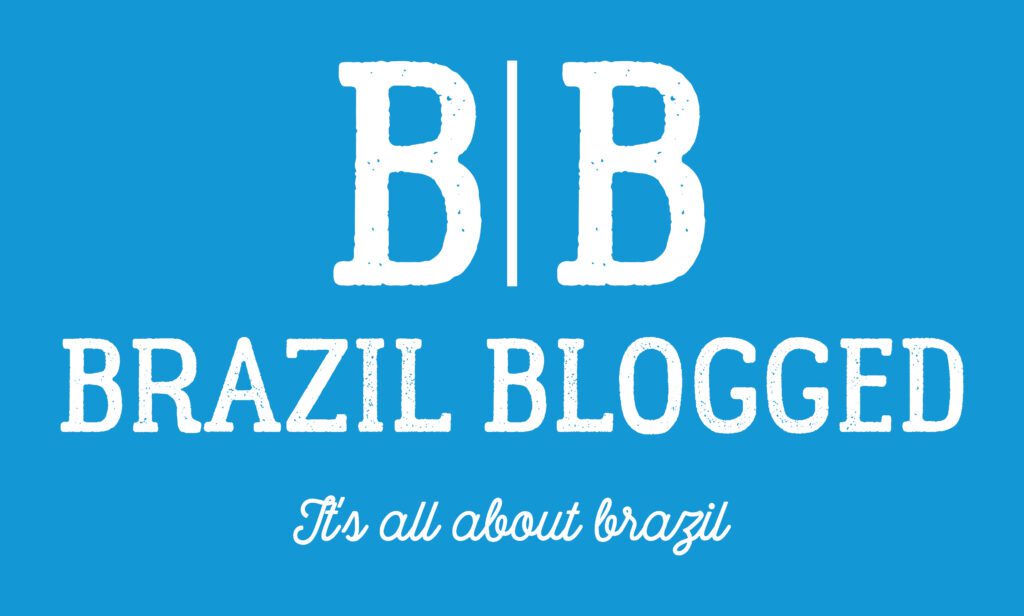Table of Content
ToggleIntroduction
The concept of Open Finance is transforming the way financial services are delivered and accessed in Brazil. By enabling the sharing of customer data among financial institutions, consumers can benefit from more personalized and competitive financial products. Open Finance is paving the way for increased innovation and financial inclusion, making it easier for Brazilians to access essential services.
Brazil has taken significant steps to integrate Open Finance into its financial system. The country’s transition from Open Banking to Open Finance has allowed for a broader scope of financial data sharing. This move promises to cover more aspects of everyday financial activities, enhancing the user experience and fostering trust in the system.
To fully understand the impact of Open Finance in Brazil, it is essential to consider various factors. These include the technical infrastructure supporting data sharing, the new services being introduced, and the challenges faced along the way. The role of PIX, Brazil’s instant payment system, is also crucial as it complements Open Finance by streamlining transactions.
Key Takeaways
- Open Finance is increasing innovation and financial inclusion in Brazil.
- Transition from Open Banking to Open Finance covers more aspects of financial life.
- Technical infrastructure and PIX play critical roles in this ecosystem.
The Evolution of Open Finance in Brazil
Open Finance in Brazil has evolved significantly, building on early Open Banking initiatives and a strong regulatory framework. This progress has influenced both the financial sector and consumer experiences.
Early Initiatives and Growth
Brazil’s journey in Open Finance began with foundational efforts in Open Banking. These initiatives set the stage for a broader Open Finance model. Open Banking allowed for greater data sharing between financial institutions, enhancing transparency and competition.
The transition to Open Finance expanded these benefits, covering more aspects of financial services. For example, consumers could now manage loans, investments, and insurance from various providers within a unified system. These early steps were crucial in laying the groundwork for more integrated financial services in Brazil.
Regulatory Framework and Compliance
Brazil has established a robust regulatory framework to govern Open Finance. The Central Bank of Brazil has been instrumental in setting guidelines that promote transparency, data protection, and consumer rights. These regulations are critical for ensuring that financial institutions comply with the new standards.
The Central Bank’s involvement has also facilitated a smoother implementation of Open Finance initiatives. This oversight helps maintain a balance between innovation and security. Compliance with these regulations is mandatory, ensuring that all players within the financial sector adhere to the highest standards of data handling and consumer protection.
By emphasizing strong regulatory measures, Brazil has managed to create a reliable and efficient Open Finance ecosystem. This has paved the way for further advancements and increased consumer trust in financial services.
The Ecosystem of Open Finance
Open Finance in Brazil is growing rapidly, influenced by various players including startups, major banks, and data aggregation services like Belvo. Each of these components plays a distinct yet interconnected role in shaping the financial landscape.
Key Players and Startups
Startups are crucial in the Brazilian Open Finance ecosystem. They introduce innovative services that make financial interactions more seamless and efficient. For instance, fintech companies, such as Nubank, offer digital banking services that appeal to tech-savvy users.
Other startups focus on peer-to-peer lending and digital wallets, making financial services more accessible. These companies are agile and adapt quickly to changes, helping drive the adoption of Open Finance. They also collaborate with larger financial institutions to integrate and enhance offerings.
Government regulations also support these startups, providing a balanced environment for innovation and consumer protection.
Major Banks and Financial Institutions
Major banks and financial institutions play a significant role in implementing Open Finance. They have the resources and customer base to drive widespread adoption.
Banks like Banco do Brasil and Itaú Unibanco are investing in digital transformation to stay competitive. They offer integration with new fintech solutions, expanding their range of services. These institutions comply with regulatory guidelines aimed at protecting consumer data.
Banks also focus on cybersecurity measures to ensure transactions are safe. This builds trust among users, encouraging them to engage more with Open Finance services.
Role of Belvo and Other Aggregators
Belvo is a key player in data aggregation within Brazil’s Open Finance ecosystem. It helps connect financial institutions with fintech startups by offering APIs that facilitate the secure sharing of financial data.
By providing this service, Belvo simplifies the integration process for new companies entering the market. Other aggregators also offer similar services, ensuring a competitive environment. These aggregators make it easier for consumers to access a variety of financial services from a single point.
Belvo’s role is critical for fostering innovation and ensuring compliance with data protection laws. This enhances trust and promotes broader adoption of Open Finance in Brazil.
Technical Infrastructure
In Brazil, technical infrastructure for open finance focuses heavily on using APIs for seamless integration and ensuring robust security and data protection measures. This combination helps create a more efficient and secure financial system.
APIs and Integration
APIs (Application Programming Interfaces) are crucial for open finance in Brazil. They make it possible for different financial systems to communicate and share data in real-time. This interoperability allows for quicker transactions and improved user experiences.
Brazil’s Central Bank has mandated the use of standardized APIs to ensure all financial institutions can exchange information easily. These APIs offer a standard format and protocol, which reduces the complexity of integration. Financial institutions can leverage APIs to provide clients with innovative services, like real-time account updates and easy fund transfers.
Open Data also plays a significant role. With standardized APIs, open data can be shared more easily and securely between institutions. This can lead to better financial products and services tailored to consumer needs. It can also help smaller companies compete with larger banks.
In summary, APIs are the backbone of integration, making financial services more accessible and interconnected across various platforms.
Security and Data Protection
While APIs and open data facilitate integration, they also bring challenges in security and data protection. Protecting sensitive financial information is crucial for maintaining trust and regulatory compliance.
Brazil’s General Data Protection Law (LGPD) sets strict guidelines for how data should be managed and protected. Financial institutions must implement robust security measures to comply with these regulations. This includes encryption, firewalls, and secure authentication methods like biometrics.
Regular security audits and vulnerability assessments are also essential. These help in identifying and fixing potential security flaws before they can be exploited. Financial institutions often employ multi-layered security protocols to safeguard data, such as two-factor authentication and end-to-end encryption for data transfers.
By focusing on stringent security and data protection measures, Brazil can create a safer environment for open finance. This ensures that consumer data is protected against unauthorized access and cyber threats, fostering greater trust in the financial system.
Services Powered by Open Finance
Open Finance is changing the way financial services are offered in Brazil. This system aims to make banking more accessible and efficient by leveraging technology and regulatory changes.
Payment Initiation Services
Payment initiation services enable users to make payments from their bank accounts directly through a third-party application. These services are part of the fintech disruption that’s happening in Brazil. This functionality reduces the need for traditional banking interfaces and makes transactions faster and more seamless for consumers and businesses alike.
Merchants benefit from lower transaction fees and quicker settlement times. Additionally, end-users enjoy a unified experience without needing to switch between multiple banking apps. The ease of use and enhanced security measures have been significant selling points for these services.
Credit and Lending Innovations
Open Finance has also fostered innovations in the credit and lending sectors. New platforms now use open banking data to assess the creditworthiness of potential borrowers more accurately. This has given rise to alternative lending models that cater to underserved markets.
Fintech companies, for instance, can now act as banking correspondents, using customer data to offer loans with better terms and lower interest rates. This democratizes access to credit and promotes financial inclusion. Implementing these technologies has streamlined underwriting processes, making loan disbursement much quicker.
Personal Financial Management Tools
Personal financial management tools are another growing area. These tools integrate with users’ bank accounts to provide real-time analysis and budgeting help. They rely on open data initiatives introduced in the Brazilian government to make this possible.
Users can track spending, set savings goals, and get personalized financial advice. These applications compile data from various sources, offering a comprehensive view of one’s financial health. The transparency and ease these tools offer make them increasingly popular, helping individuals better manage their money and plan for the future.
Challenges and Opportunities
Brazil’s open finance system offers significant potential for growth. However, it also faces security challenges and opportunities for financial inclusion.
Addressing Security Concerns
The rapid adoption of open finance in Brazil has raised concerns about data security. As financial institutions share data, there is a risk of unauthorized access and breaches. Strong encryption methods are essential to guard sensitive information.
Increased collaboration between banks and fintechs led to varied security standards. This can create weak points vulnerable to cyberattacks. Regulatory bodies play a crucial role in setting consistent security protocols.
Public awareness is also vital. Educating consumers about safe practices can minimize fraud. Transparent reporting mechanisms help detect and address breaches promptly.
Leveraging Inclusion for Growth
Open finance creates opportunities to improve financial inclusion in Brazil. By providing access to financial services, it serves underbanked populations. This can lead to increased economic participation and growth.
Microloans and credit scoring models are more accessible through open banking. These tools help small businesses and individuals gain credit. Personalized financial products can also meet the unique needs of diverse communities.
Education and digital literacy programs support inclusion efforts. As more people understand and trust digital services, they are more likely to participate. Collaborative efforts between government, banks, and fintechs are key to driving these initiatives forward.
Impact on Financial Inclusion
Open Finance in Brazil significantly impacts financial inclusion by expanding access to financial services and fostering economic empowerment. The following subsections will explore these aspects in detail, addressing their importance and implications.
Expanding Access to Financial Services
Open Finance enables broader access to banking and financial services for Brazil’s population. It uses technology to provide financial services to underserved areas and communities. For instance, PIX, Brazil’s payment system, simplifies transactions and reduces costs.
Services like branchless banking play a crucial role. They bring banking to remote regions like the Amazon, using information and communication technology (ICT) to bridge gaps. Studies have shown that branchless banking aids in financial inclusion in places like Autazes, offering banking services without needing physical branches (read the case study).
Fostering Economic Empowerment
Economic empowerment through Open Finance comes from integrating more people into the financial system. By providing previously excluded individuals with financial tools, Open Finance encourages entrepreneurship and better financial management.
Incorporating more individuals helps reduce poverty levels. People can save, invest, and access loans more easily. The policies of Banco Postal and other initiatives have shown positive outcomes by leveraging existing networks like post offices to offer financial services. This broad inclusion fosters sustainable economic growth and empowers individuals economically.
Through these measures, Open Finance advances not just access, but also long-term financial health and stability, creating opportunities for economic progress across Brazil.
User Experience in Open Finance
Open finance in Brazil is reshaping how customers interact with financial services. A key aspect is enhancing user experience. Financial institutions focus on service quality and innovation to meet user expectations.
User Experience Design: Financial apps integrate intuitive interfaces and seamless navigation. Easy-to-use platforms help users manage accounts, transfer funds, and track financial health.
Service Accessibility: Users have access to more personalized financial advice. They experience fewer barriers when accessing credit or investment opportunities thanks to data aggregation services.
Innovation: Fintech companies introduce cutting-edge technologies. They employ AI-driven tools and real-time analytics to offer tailored financial products, improving satisfaction.
Brazil has witnessed rapid advancements in fintech ecosystems. For instance, Banks 4.0 in Brazil emphasizes the role of fintech in the broader financial landscape, providing innovative solutions.
User experience also encompasses transparency. Financial institutions are adopting open data practices, as discussed in transparency initiatives. This builds trust and encourages user participation in open finance.
User Feedback: Continuous improvement is driven by user feedback. Financial services regularly update their platforms based on customer reviews and suggestions.
Overall, the focus on user experience, enhanced service, and innovation is making open finance in Brazil more accessible and user-friendly.
The Role of PIX in Open Finance
PIX is an instant payment system introduced by the Central Bank of Brazil. It plays a significant role in the Open Finance ecosystem. By allowing real-time transactions, PIX has modernized the financial landscape in Brazil.
Users can transfer money 24/7 using PIX. This system operates through simple identifiers like phone numbers or email addresses, making it accessible and user-friendly.
| Feature | Description |
|---|---|
| Speed | Instant transfers, processed in seconds |
| Availability | Operates 24/7, including holidays |
| Security | Advanced encryption and fraud detection |
The introduction of PIX has made financial transactions much faster and more efficient. It reduces the reliance on traditional banking hours and systems, providing constant access to funds.
Benefits of PIX in Open Finance:
- Inclusivity: More people can participate in the financial system.
- Cost: Reduces transaction fees for users.
- Innovation: Encourages new financial products and services.
As part of the Open Finance model, PIX allows users to share their transaction data. This enables better access to various financial services, such as credit applications and personal finance management.
The Central Bank of Brazil ensures that PIX remains secure and reliable. Their role is crucial in maintaining trust and stability in the system.
PIX’s integration with Open Finance initiatives enhances the financial sector’s transparency and efficiency. By enabling easier data sharing, it helps users manage their finances more effectively.
With the adoption of PIX, Brazil has made significant strides in digital financialization. The ongoing development and support from the Central Bank ensure that it remains a vital part of the Open Finance ecosystem.
Future Trends and Predictions
Open Finance in Brazil is set to expand. The transition from Open Banking to Open Finance aims to cover more aspects of financial life. This will likely involve more comprehensive data sharing and new services.
Artificial Intelligence (AI) will play a significant role. AI can help in predicting market trends, identifying risks, and personalizing customer experiences. Financial institutions might use machine learning methods for better inflation forecasting.
List of potential trends in the market:
- Increased use of instant payments.
- Growing influence of fintech solutions.
- Expansion of financial services beyond traditional banking.
Prediction indicates that more people will use digital platforms for financial management. This includes investments, insurance, and personal finance. The landscape will likely become more competitive, with traditional banks and new fintechs offering innovative solutions.
Finally, regulatory developments will continue to shape the sector. As the rules around data sharing evolve, financial institutions will need to adapt. This may lead to smoother processes and more secure transactions.
The future of Open Finance in Brazil looks promising with these key factors at play.
Creating Invaluable Content in Open Finance
Creating high-quality content in open finance requires a keen understanding of the financial landscape. Authors should focus on providing clear and accessible information to a diverse audience. This involves breaking down complex financial concepts into simpler terms.
Key Elements
1. Relevance: The content should address current trends and issues in open finance. This ensures readers stay informed about the latest developments in the field.
2. Accuracy: Providing accurate data is crucial. Whether discussing the regulatory framework in Brazil or the impact of fintech firms, it’s essential to rely on verified sources. For example, articles like Open Banking: How to Design for Financial Inclusion offer valuable insights.
3. Engagement: Use engaging formats like infographics, tables, and lists to present information. This makes the content more digestible and keeps the reader interested.
Topics to Cover
Regulatory Framework: Discuss the regulatory environment, including significant laws and guidelines. Refer to studies like Banks 4.0 in Brazil for detailed analysis.
Financial Inclusion: Highlight initiatives aimed at expanding financial access, especially for underserved populations. Sources such as Open Banking: How to Design for Financial Inclusion can provide important context.
Technology and Innovation: Focus on how fintech and technological advancements are transforming finance in Brazil. Use information from academic articles for in-depth perspectives.
Best Practices for Authors
- Research Thoroughly: Ensure all data is up-to-date and from reliable sources.
- Use Simple Language: Make the content accessible to readers with varying levels of financial literacy.
- Visuals: Employ charts and graphs to illustrate key points effectively.
By following these guidelines, authors can create invaluable content that educates and engages readers, contributing meaningfully to the discourse on open finance.
Direct Debit and Recurring Payments Revolution
Brazil has seen a significant shift with the introduction of direct debit and recurring payments. These methods have made transactions smoother and more efficient. Customers can now authorize automatic payments for services like utilities and subscriptions.
Advantages of Direct Debit:
- Convenience: Payments are processed automatically.
- Security: Reduces the risk of missed payments.
- Efficiency: Saves time and reduces paperwork.
Recurring Payments: These payments ensure that regular transactions occur without manual intervention. For instance, many people use recurring payments for streaming services and mobile bills.
Why It Matters: Direct debit and recurring payments simplify financial management. They ensure timely payments and can help avoid late fees. Businesses benefit too. Regular payments mean stable cash flow and fewer collection issues.
Key Innovations:
- Integration with Digital Wallets: Many providers have integrated direct debit and recurring payments with digital wallets.
- APIs and Open Banking: Open Finance initiatives allow for better-defined APIs, making these services more accessible and secure.
In Brazil, these innovations are transforming the financial landscape. Banks and fintech companies are actively adopting these methods. For example, Nubank faced challenges but eventually leveraged direct debit to provide smoother services for its clients.
The push toward these technologies continues to grow. As more consumers and businesses see the benefits, direct debit and recurring payments are becoming the norm in Brazil’s financial ecosystem.
Frequently Asked Questions
Open Finance in Brazil is rapidly evolving. The adoption of regulatory measures and technologies like Pix has significantly impacted both financial institutions and customers.
How does the Central Bank of Brazil regulate Open Banking?
The Central Bank of Brazil oversees Open Banking through strict regulatory frameworks. These regulations ensure that financial data sharing is secure and transparent. This includes mandating standardized APIs for data exchange among banks and other financial institutions.
What impact does Pix have on Open Finance in the region?
Pix has revolutionized instant payments in Brazil. It provides a fast, 24/7 payment system that boosts financial inclusion. By reducing transaction costs, Pix enhances the efficiency of Open Finance initiatives.
What are the benefits of Open Finance for financial institutions and customers in Brazil?
Open Finance offers increased transparency and competition. Customers benefit from personalized financial services and better product recommendations. Financial institutions gain from data-driven insights, which help in developing innovative products and services.
How does Belvo support the Open Finance ecosystem in Brazil?
Belvo plays a crucial role by providing reliable APIs for financial data aggregation. This helps both fintechs and traditional banks to connect and share data efficiently, fostering a more integrated financial ecosystem.
What are the challenges faced in the adoption of Open Banking in Brazil?
Adoption challenges include concerns about data privacy and security. There are also technological barriers and resistance from traditional financial institutions. Ensuring consumer trust and smooth API integration are ongoing hurdles.
How has the population of Brazil engaged with Open Banking services?
The Brazilian population has shown a growing interest in Open Banking services. Increased financial literacy and smartphone penetration have contributed to higher engagement. Many users appreciate the convenience and personalized financial solutions offered.











